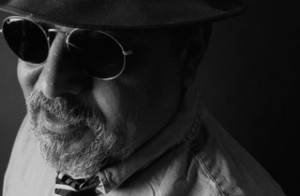Chávez Time: Interview with Venezuelan Photographer Luis Brito
by Mariana Centeno / May 8, 2012 / 6 Comments
Below Sampsonia Way presents the second installment of Chávez Time, a series of interviews with Venezuelan media professionals about working under Hugo Chávez’s government. The first installment was an interview with cartoonist Rayma Suprani (who was threatened earlier this year).
 Luis Brito is a Venezuelan photographer. Former director of the Photography Department of the National Institute of Culture and Fine Arts (1971-1976), he is part of El Grupo, a free association of photographers who document the country through photography. In this interview, conducted via email, he talks about the risks and difficulties of taking pictures during Chávez times.
Luis Brito is a Venezuelan photographer. Former director of the Photography Department of the National Institute of Culture and Fine Arts (1971-1976), he is part of El Grupo, a free association of photographers who document the country through photography. In this interview, conducted via email, he talks about the risks and difficulties of taking pictures during Chávez times.
- Luis Brito
- • Photographer
- • Field: Documentaries
- • National Photography Award, 1996
- • Work and relevant portfolios: ¿Recuerdas a Eleonor Rigby?, Anare , and Las Muñecas de Reverón
- • Youtube channel
What is your opinion of the government’s position that absolute freedom of expression exists in Venezuela?
Absolute freedom of expression would exist if people and institutions didn’t have to pay consequences for what they say; thus I think that there is no absolute freedom of expression in Venezuela. For example, if a state contractor expresses disagreement with a government action it’s normal for the government to cancel his/her contract and forbid all state organizations from hiring him/her again. People can express their disagreements, but they know they will face unusual consequences for a country that claims to respect freedom of expression: Dismissals, prison, impediments to state employment, etc.
Is the average Venezuelan citizen afraid of capturing reality through photography? What obstacles are put in place to keep photographers from reporting the truth?
Yes, they are afraid. Photographers also do not have access to news scenes, which are often surrounded by soldiers who prevent us from taking pictures that contradict the official version of a story. For instance, recently there was an oil spill that affected the State of Monogas’s water supply. There was evidence that lead people to believe the spill got worse because of the inefficiency of authorities who were assigned to solve the problem. As soon as this occurred the area was enclosed by soldiers who blocked journalists and photographers from entering or making any contact with residents from the area.
Have you ever been harassed or threatened for something you’ve published?
Yes. I was attacked in my home for taking part in a group that was not sympathetic to the government. The attack had serious consequences on my health and I had to leave the country for six months with the support of the human rights organization COFAVIC. Currently I am barred from working for official organizations and my work has been banned in state museums and art galleries.





6 Comments on "Chávez Time: Interview with Venezuelan Photographer Luis Brito"
Hello, thanks for these articles, but Luis Brito, the photographer, is not Luis Britto Garcia, the writer! This is quite a confusion, due to the fact that the latter sympathizes with the regime of Hugo Chavez, while Luis Brito, the photographer, does not.
Thanks
Amalia Caputo
Thanks for correcting it!
Saludos a todos, gracias Mariana por etas series de entrevistas. Que bueno saber del Maestro Luis Brito mis saludos y respetos para él, por supuesto lo apoyo y considero cierto lo que comenta en la entrevista .
Saludos a Todos, Gracias Mariana esta serie de Entrevistas. Que bueno saber del Maestro Luis Brito mis saludos y respetos Para el, por supuesto lo apoyo y considero cierto lo que comenta en la entrevista.
Amalia, thanks so much for pointing out our mistake. We appreciate your close reading!
– Sampsonia Way
TODO LO QUE DICE LUIS BRITO ES MENTIRA, SI HA SIDO LLAMADO PARA TRABAJAR PARA EL GOBIERNO SINO PREGUNTENLE A CECILIA TODD O JOSE CESARINO, CREO QUE ESTO NO SERA PUBLICADO, PERO BUENO